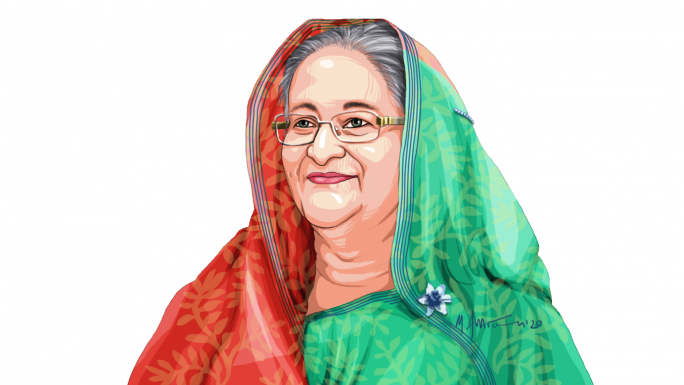Prime Minister Sheikh Hasina on Wednesday asked concerned authorities to explore new markets for Bangladeshi garments with the invention of newer items keeping pace with its ever-changing trend.
“They, who are working with garments and their exports, will have to find new markets. Newer products will have to be produced keeping in mind that the choices vary with different countries,” she said.
The premier was addressing as the chief guest a function marking the National Textiles Day-2022 and the inauguration of six textile educational institutes in six districts, joining from her official Ganabhaban residence in Dhaka through a video conference.

The Ministry of Textiles and Jute organised the function at Bangabandhu International Conference Centre (BICC) in Dhaka.
The prime minister said Bangladesh has to coordinate fresh ideas with its old and historical tradition in textiles, for which, a university on fashion and design was established in the private sector to prepare skilled manpower.
“Fashion and design are very important and they are changing constantly. We have to keep pace with the ever-changing trend of the garments industry and realise which design is high in demand,” she said.
The newly inaugurated six textile institutes are — Sheikh Rehana Textile Engineering College in Gopalganj, Sheikh Russel Textile Institute, Jamalpur, Shahid Abdur Rob Serniabat Textile Institute, Gouronodi, Barishal, Shahid Kamaruzzaman Textile Institute, Naogaon, Begum Amina Mansur Textile Engineering Institute, Sirajganj and Bhola Textile Institute.
Textiles and Jute Minister Golam Dastagir Gazi (Birpratik), its Secretary Md Abdur Rauf and Bangladesh Garment Manufacturers and Exporters Association (BGMEA) Acting President Shahidullah Azim also spoke at the function.
On behalf of the prime minister, the textiles and jute minister handed over honorary awards to 10 persons and institutions including BGMEA, BKMEA, BTMEA, and Bangladesh University of Textiles.
A video documentary on the measures taken by the government for advancement of textiles in Bangladesh was screened.
















